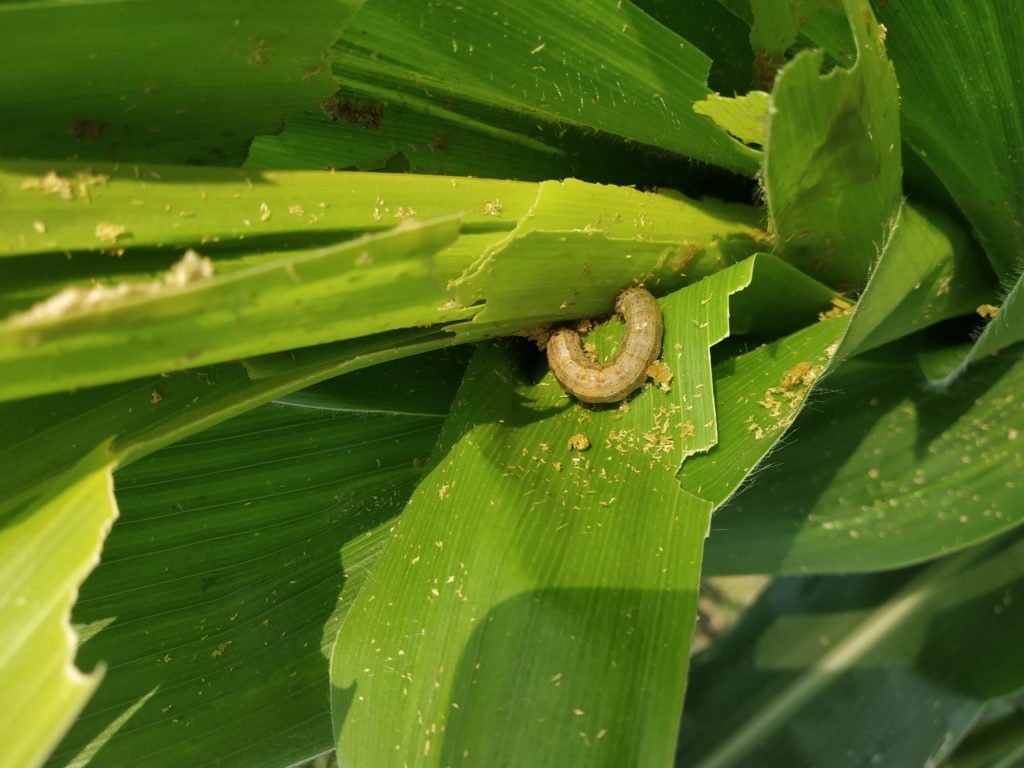Infestation of Fall Army Worm in Manipur, a national workshop on, “management of Fall Army Worm in the scientific production of Maize” was organised at ICAR complex, Lamphelpat, Imphal.
 Lelen Vaiphei
Lelen Vaiphei

Taking serious concern regarding the infestation of Fall Army Worm in Manipur, a national workshop on, “management of Fall Army Worm in the scientific production of Maize” was organised at ICAR complex, Lamphelpat, Imphal.
Officials during the workshop informed that FAW could infest on 80 other crops besides Maize. They suggested finding out the rate of natural enemies attacking FAW, taking feedback from farmers from infested areas, developing a feasible method to control and minimize the infestation, seed treatment before plantation and handpicking the pest for farmers cultivating maize in small scale to avoid future effect of pesticides.
Director, Directorate of Agriculture, Manipur, Laltanpuii Vanchong while addressing the gathering comprising farmers and different scientist and officers related to agriculture said, “36 member field teams were scattered in different parts of the state, considering the seriousness of the infestation, the number has been increase to 70 for effective work and findings.”

She informed that the Joint Action Team had visited 249 villages where 203 villages had been infested, covering an area of 301 hectares. To extend help to the infected areas, a helpline number for the whole state and two for each district has been started, she added.
Informing that some parts of hill districts had been hard to reach as it is not motor able. She also suggested a new strategy to tackle the FAW and further appealed the scientist to consult the agriculture department too.
For farmers cultivating maize in small scale, handpicking the pest is the best method as pesticides may control the infestation but the later effect is unpredictable she added.
Registrar, Central Agricultural University, Imphal professor K. Mamocha Singh in his speech as one of the guest of honor said that it is important to know the rate of natural enemies attacking FAW. If the rate of the attack is such that it controls the population of FAW, the infestation can be decrease.
He also suggested for a laboratory where the natural enemy of FAW can be multiplied to tackle FAW. Though push pull method is successful in Africa, research is essential to find out whether the same is feasible in the state, he added.
Principal scientist and ABD in charge ICAR-Indian Institute of Millets Research, Hyderabad J. C. Shekhar said the infestation can be manage effectively by crashing the eggs of the pest and crop scouting.
He also said community basis management of maize and finding out the presence of pest in early stage is important along with the method of spraying pesticides. Pesticides should now be spread in the whole plant as infestation increase and it may not be able to eradicate but can minimize the infestation, he added.
Speaking as the chief guest of the programme, agricultural commissioner, Manipur Sumant Singh said that scientist should clarify the possibility where FAW can shift from its host plant maize to other crops as it is the biggest worry.
While saying that he also suggested the officials to obtain feedback from infested areas such as Mizoram which had been infested at large and also from the places infested in the state in order to fight FAW. He further suggested the need of institutionalized joint meeting prior to maize season to take up precautionary measures.
While delivering the keynote address of the programme, Senior scientist and NEH coordinator, ICAR-IIMR, Pusa, New Delhi, S.L. Jat informed that 16 states in the country had been reportedly infested. Though FAW infestation is difficult to eradicate its infestation can be minimize. FAW can create havoc for maximum of 3 years and it can also infest 80 other crops besides maize.
He also said focus should be made on integrated management and lesser use of pesticides besides seed treatment before plantation for protection.
Fall Armyworm (FAW) was earlier confined to the USA until 2015 and by 2017, it spread to some African countries, creating havoc in the continent. This pest was detected for the first time in India’s state Karnataka in 2018 and rapidly spread to other parts of the country with Chhattisgarh as the last state to report the pest in January this year. However, the pest was detected in some parts of North East states such as Mizoram and Manipur recently.


